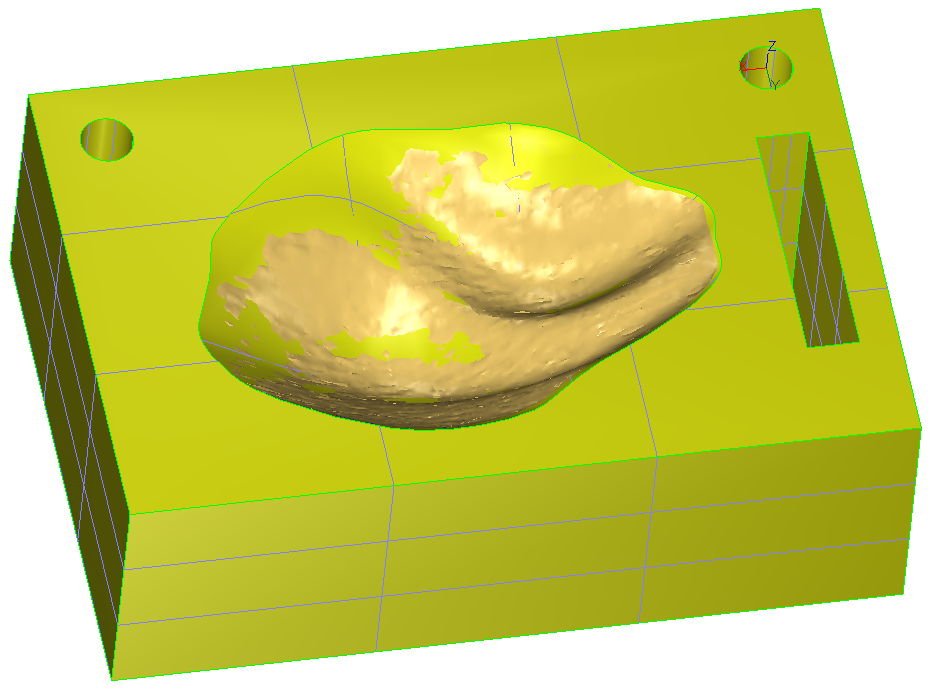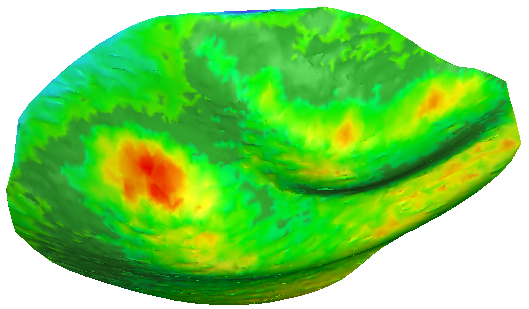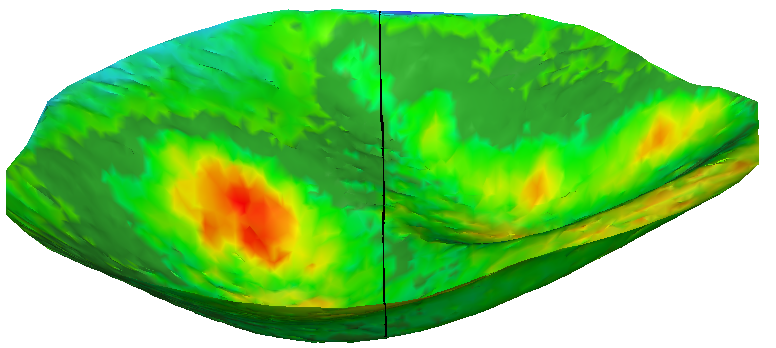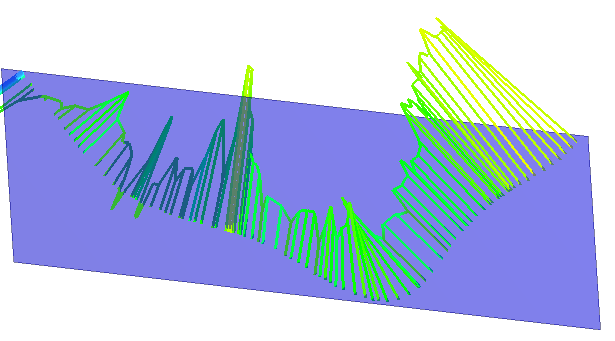Radial sections
This command computes a set of planar sections around an axis. Set of sections are displayed as a single entity, but you can access to each individual section using the command Ungroup Polyline.
Requirements
Select all the mesh(es) on which you want to calculate sections and launch the command.
Enter the direction of the radial section axis.
Enter the origin of this axis.
Range : choose where the sections are calculated:
Regular: with a regular step, for example one section each 45°
All over: all over the object
Custom: only between two angle values
Pass through: force the section to pass through a given angle or a given point
List of angles: pick points or enter angle values to choose where to calculate sections.
You can also select the option Compute parallels to obtain quadrangular contours.
Technical information
Sections on an inspected mesh
If the sections are computed on the inspected mesh (considered as well as the reference or measure), the sections will keep the inspection values of the mesh. It means that the hair diagram will not be, in most cases, in the plane of the section. It depends on the type of inspection (2D or 3D).
Restriction: when a mesh was colored as the measure with a cloud as reference, this capability is not available.
Example of a hair diagram in 3D on a planar section:
 1. CAD and mesh used to compute the inspection
1. CAD and mesh used to compute the inspection
 2. 3D Inspection with colors applied on the 3D mesh
2. 3D Inspection with colors applied on the 3D mesh
 3. Section on the inspection mesh (Y plane)
3. Section on the inspection mesh (Y plane)
 4. Plane Y and hair diagram in 3D: direction of the deviation
4. Plane Y and hair diagram in 3D: direction of the deviation
If you want to have a hair diagram on the plane of the section:
Do an inspection in the direction of the plane and then do a section with this plane.
Do a section in the plane on both entities (reference and measure) and then do an inspection of this polyline/set of polylines.